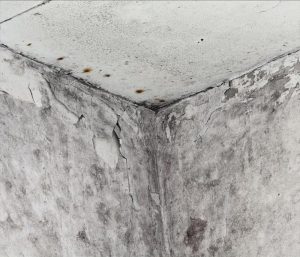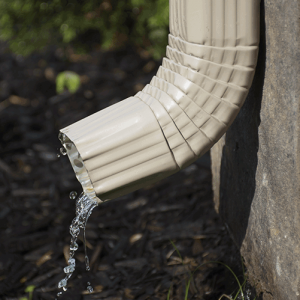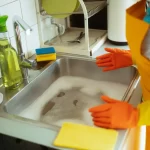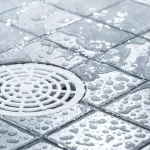In Mississauga, a damp basement is a common issue but shouldn’t be ignored. Moisture can cause structural damage, mold growth, pest infestations, and reduce your home’s value. Common causes include poor drainage, high water tables, foundation cracks, and leaking pipes.
To tackle basement moisture:
- Inspect and Repair: Look for leaks and cracks, and fix them promptly.
- Improve Drainage: Clear gutters and install a sump pump or French drain if needed.
- Waterproofing: Apply sealants and consider a vapor barrier.
- Ventilation: Use dehumidifiers and improve airflow.
For persistent issues, contact Absolute Draining & Plumbing for professional solutions and peace of mind
When you have a wet basement, it is not so much the water that you are worried about. It is the kind of environment that this water creates. Things like mould and mildew can grow quickly in this cool, damp environment. If the condition is left unchecked for long enough, it can cause damage to the walls, the floors, the ceilings and more. In addition to that, it can be harmful to your health to have this kind of biological growth in the home.
To protect your home and family, it is important to determine the cause of your wet basement and properly address the situation.
Find the Problem
To effectively tackle excessive moisture in your basement, it’s crucial to first identify where the water is coming from. Here’s a step-by-step guide to help you find the problem:
- Inspect for Leaks:
- Check for Water Stains: Start by examining the walls and ceiling for water stains or discoloration. These stains often indicate a leak. If the stains are localized, such as in a specific area of the ceiling or wall, it might point to a problem with a pipe or joint that’s leaking.
- Look for Drips or Puddles: Examine areas where water might be accumulating. Look for signs of dripping or puddles, which could suggest a faulty pipe or appliance. Sometimes, leaks can be hidden behind walls or ceilings, so be thorough in your inspection.
- Examine Exterior Walls and Foundation:
- Check for Water Seepage: If you notice moisture primarily near exterior walls or in corners where the walls meet the floor, the issue might be water seeping in from outside. Look for cracks or gaps in the foundation or walls where water could enter.
- Inspect Gutters and Downspouts: Ensure that gutters and downspouts are clear of debris and directing water away from the foundation. Blocked or malfunctioning gutters can cause water to pool around your home’s foundation, leading to seepage into the basement.
- Evaluate General Dampness:
- Check for Condensation: If the moisture issue seems more generalized, affecting the entire basement or large sections of it, condensation might be the culprit. This often occurs when warm, humid air comes into contact with cooler surfaces, such as concrete walls or floors.
- Assess Ventilation: Poor ventilation can exacerbate condensation problems. Make sure your basement has adequate airflow. Consider using dehumidifiers or improving ventilation with fans or vents to help reduce moisture levels.
- Look for External Factors:
- Assess Landscaping: Ensure that the landscaping around your home directs water away from the foundation. Sloping ground and proper drainage are essential in preventing water from pooling near your basement walls.
- Inspect Basement Windows and Doors: Check that basement windows and doors are sealed properly. Poor seals can allow rainwater to enter and contribute to moisture problems.
- Consider Seasonal Factors:
- Analyze Weather Patterns: Seasonal changes can impact moisture levels. Heavy rains, snowmelt, or seasonal humidity can all contribute to basement moisture issues. Understanding these patterns can help you determine if the problem is related to specific weather conditions.
By carefully investigating these potential sources, you can accurately diagnose the cause of your basement moisture problem and take appropriate steps to address it. Whether it’s fixing leaks, improving drainage, or enhancing ventilation, identifying the root cause is the first critical step in managing and preventing excess moisture in your basement.
Eliminate Humidity
If condensation is making your basement damp, you need to take steps to reduce the humidity in the air. Use the exhaust fans in your basement and kitchen to control the moisture in the air. Check the ducts on these fans to make sure that they are venting to the outside of the home. Inspect your dryer vent to make sure that it is not leaking and that it is directing the air outside.
 Even if you follow the above-mentioned steps, you may find that you still have problems during the more humid times of the year. If this is the case, then you may want to buy a dehumidifier to run in the basement. When you buy a dehumidifier, you want to make sure to get one that is the right size for your basement. If it is too small, it may not have much of an effect, and it may fill up before it has a chance to remove enough moisture from the air.
Even if you follow the above-mentioned steps, you may find that you still have problems during the more humid times of the year. If this is the case, then you may want to buy a dehumidifier to run in the basement. When you buy a dehumidifier, you want to make sure to get one that is the right size for your basement. If it is too small, it may not have much of an effect, and it may fill up before it has a chance to remove enough moisture from the air.
Insulate Pipes and Walls
Insulation can be good for preventing problems with a wet basement. One of the most common problems is water condensing on cool pipes. By fitting the pipes with foam insulation, you can fix this problem. It is easy to do, and the insulation is not expensive.
Water may also condense on the exterior walls. If you see condensation on the exterior walls, you can line them with insulation to prevent the problem. It is important to note that this is only a good fix if it is condensation that is causing the moisture. If it is water leaking in from the outside, not only will it not fix the problem, but it may also cause a mould problem behind the insulation.
Gutters
Your gutters do so much to protect the value of your home. Every year, you should take the time to clean and inspect the gutters to make sure that they are doing the job of channeling water to the downspouts and away from the structure.
 If your gutters are clogged or in a state of disrepair, it can cause all sorts of problems. One of which being that it can contribute to water that may leak into the basement. In addition to cleaning your gutters regularly and making sure that they are functionally sound, you also want to look to see where they are letting the water out.
If your gutters are clogged or in a state of disrepair, it can cause all sorts of problems. One of which being that it can contribute to water that may leak into the basement. In addition to cleaning your gutters regularly and making sure that they are functionally sound, you also want to look to see where they are letting the water out.
On many homes, you may see that the water comes out of the downspouts within three feet of the home. If this is true of your home, then you may want to buy extensions. Three feet is considered a minimum in regard to where you want the water coming out from your downspouts, but if you can go to five feet, that would be even better.
Keep Water Away From the Foundation
Keeping water away from your home’s foundation will do more than just keep water out of the basement; it could also be a good step toward preventing foundation damage. To keep water away from your foundation and prevent it from leaking in the basement, you will want to consider the drainage on your property and the grade.
The grade on your property should gradually decline away from the structure. When a home is built, this is done intentionally. With the grade going away from the home, the water will run downhill and away from the foundation. Over time, the grade can erode and the ground can settle. This will allow water to build up around the foundation, and it can leak into the basement. A professional will be able to inspect and perform appropriate basement waterproofing measures to rectify this problem.
Installing drainage can be another way to keep water away from your home foundation. If you already have drains on the property, you might want to get a plumber to come inspect them. They could be clogged, or they might be damaged. If you do not have drains, then you might want to consider having French drains installed.
A wet basement might seem like a minor problem, but it is something that should not be ignored. It can cause damage to your property and contribute to health problems. With many of these issues, the fix is simple and it will be something that you are able to diagnose and repair on your own. However, there are some basement moisture problems that are better left to the pros. If you need help with a wet basement in Mississauga, only hire licensed plumbers that have experience with basement waterproofing.






